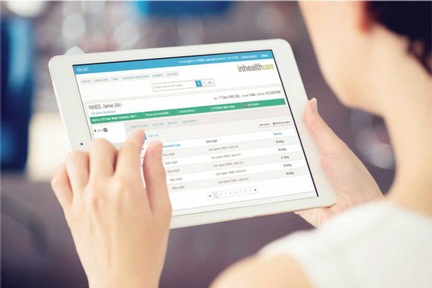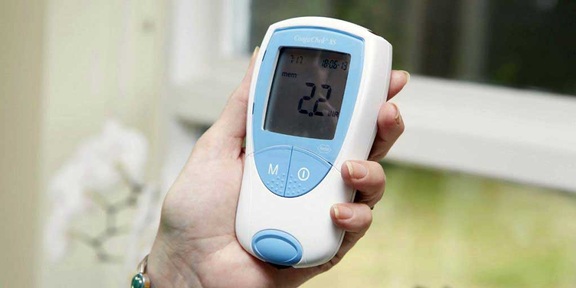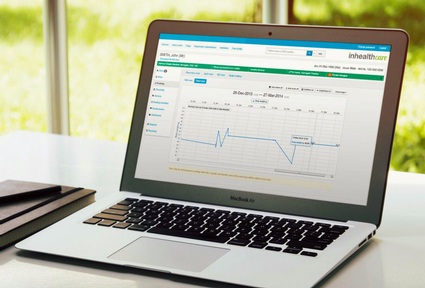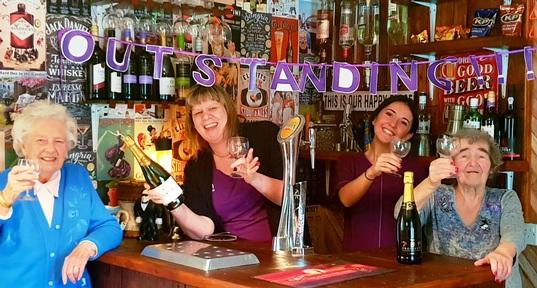Digital technology helping to revolutionise resident monitoring in care homes
Care homes are under an increasing amount of pressure to offer a range of care and support services to those in their care. Care staff are tasked with attending to the personal wishes and requests of residents, preparing their food and accurately administering medication.
Systems and innovations are helping care staff to accurately carry out their daily tasks and improve the health and well-being of residents and service users.

More than 15m people are estimated to be living with a long-term health condition, accounting for over 70 per cent of total health and care expenditure. They account for over half of GP appointments, more than two thirds of hospital bed days and more than 60 per cent of outpatient appointments.
NHS Healthcall is a joint partnership between County Durham and Darlington NHS Foundation Trust (CDDFT) and Inhealthcare, providing digital technology to health and care professionals in adult social care services and the NHS. The service enables them to digitalise the way care is monitored and delivered in care homes and healthcare environments across the UK.
Connecting local primary care providers
Commercial director of Inhealthcare, Simon Jones, commented: "Care homes can play a central role in filling the intermediate care vacuum – but only if the staff have the correct knowledge and skills, services are connected to local primary care providers and care is proactive."
Inhealthcare’s services integrates patient data into existing GP systems, helping to improve co-ordination between care homes and local NHS services, by allowing the data to be viewed by all departments. If the readings fall outside of a patient’s normal range, the appropriate NHS team will be alerted, highlighting potential health problems earlier and reducing the likelihood of hospital admissions.
Mr Jones continued: "Whilst many homes already monitor vital signs, few integrate information into the NHS – a central requirement if escalation to secondary care is to be avoided."
Originally piloted in 2013 before launching in Country Durham and Darlington in 2014, their services are already supporting 20,000 patients, residents and service users, managing Warfarin levels outside of a hospital or clinic environment, helping those with chronic pain to live independently, and monitoring undernutrition of people living in care homes.

Staff can use a range of channels, including automated phone calls, text messages and online cloud platforms to input and receive information, ideal for use by a range of people, regardless of their age, internet access or technical ability.
Inhealthcare’s services provide care homes with a resident monitoring service that is supported by technology and allows care homes to demonstrate the services they provide to commissioners and the CQC. They act as an early warning system to care home staff as they carry out regular resident monitoring, spotting signs of deterioration and undernourishment before problems escalate.
Care home residents experience 40 to 50 per cent more A&E admissions than the general population aged 75 and over, so improved patient management is vital to reduce and prevent these admissions where possible.
The Undernutrition service was designed by a team of Masters Student dietitians, using information and expertise from a digital undernutrition screening service for people receiving home care.
Following on from its success reducing the length of time that people were receiving dietetic care and the improved outcomes it offered, a similar system was devised for use in care homes.
Implementing radical new models of care
The Undernutrition Service is now in operation in nearly 100 care homes in Country Durham and has been for the past two years, while staff working in the Hartlepool and Stockton regions are trained in how to use the technology.

The service uses an Red, Amber, Green (RAG) scoring system to measure the severity of a person’s undernutrition. This is defined by the Malnutrition Universal Screening Tool (MUST) score. The MUST score is the standardised tool of assessing how undernourished a person is, whether they’ve got an appetite, how many supplements they take and how much they’re eating. This information is inputted and derives a RAG score which allows the commission to act appropriately, depending on this score.
Business development manager at County Durham and Darlington NHS Foundation Trust (CDDFT), Ian Dove commented: "The NHS has known for a long time that care homes and the voluntary sector could expand out-of-hospital care delivery, if they could be more effectively integrated into local health and social care economies. The Inhealthcare platform provides the flexibility and interoperability we need to implement radically new models of care.
"The service was originally established to be used by staff with residents using a landline, but after feedback from the care homes and staff, we designed a web portal. The portal allows the information to be inputted by staff members on the spot, or if access to a computer is limited, some care homes are filling in a form and the home admin system is inputting the information.
"This ensures that dietitians, who are best trained to deal with issues surrounding people’s nutrition and weight can be alerted to residents who need extra nutritional support and can offer care home staff advice on how best to help and support those residents."
Cutting unnecessary costs and reinvesting money into alternative services
Along with the anticoagulation INR self-testing service and the Falls Prevention Service, NHS Healthcall are helping to develop a Case Management service which will allow care homes to take preventative measures to offer a more holistic view to what is happening in a particular care home. This will allow care staff to identify who is in most urgent need of seeing a clinician on that day.

Darlington has a population of approximately 100,000 people, of those, more than 2,000 are taking nutritional supplements, while 1,800 of those are older people. The Undernutrition Service has been designed to help people receive the right care at the right time.
A community matron is responsible for the care in a care home and oversees The Undernutrition Service and if she has a problem, can raise the issues with a multidisciplinary team and bring in the appropriate health care professionals.
Speaking about the direct impact the new system has had on the Country Durham and Darlington area, Mr Dove said: "So far, The Undernutrition Service has reduced the care pathways from nine months to four months, resulting in people being seen faster. Our waiting list has been reduced from twelve weeks to two weeks and it has stopped 183 outpatient appointments within a nine month period.
"Finally it has cut unnecessary prescribing of oral nutrition supplements, allowing Clinical Commissioning Groups to reinvest that money into providing alternative services, instead of spending on products that aren’t being used effectively."
Previous practice saw care homes receive visits from district nurses and record MUST scores and other readings on paper. The Cloud based system allows care homes to access a web portal and fill in a form for each residents, focusing on undernutrition and keeping an electronic record which is connected to each resident’s clinical record in their local GP practice and available across the entire health community.
Mr Dove added: "With the previous system, care staff understood what they should be cooking and the supplements they should be giving to residents, but they didn’t have a good understanding of why. This new system has led to them feeling more empowered and more responsible. They feel the system is more joined-up and that they have a shared responsibility, and now when they weigh someone they can see if something is wrong and what can be done to help rectify the situation."
For more information, visit: www.nhshealthcall.co.uk or www.inhealthcare.co.uk.
Latest Innovative Care News
 13-May-19
'Pink drink' brain cancer treatment rolled out across NHS in memory of Baroness Jowell
13-May-19
'Pink drink' brain cancer treatment rolled out across NHS in memory of Baroness Jowell
 25-Apr-19
Louis Tomlinson helps 83-year-old who lost wife to dementia complete bucket list
25-Apr-19
Louis Tomlinson helps 83-year-old who lost wife to dementia complete bucket list
 22-Mar-19
UK's top care home handyman takes residents to pub for pie and pint
22-Mar-19
UK's top care home handyman takes residents to pub for pie and pint
 12-Feb-19
Michael McIntyre's jokes tested to see if they stop elderly catching flu
12-Feb-19
Michael McIntyre's jokes tested to see if they stop elderly catching flu
 07-Jan-19
'We were lucky to find it': Family's delight as care home is rated Outstanding
07-Jan-19
'We were lucky to find it': Family's delight as care home is rated Outstanding